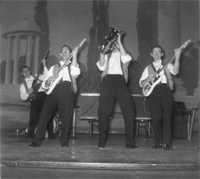
![]()
|
With Pete M 1 | 2 | 3 | 4 |
|
|
Along with playing for school functions, the group began playing for WGRD (a local rock station) dances. They were paid $15 for these appearances. The local teens turned out for The Kingtones and Phil Roberts felt the group should be paid more. He told WGRD management he wouldn't play anymore unless they gave the group a raise. The "nerdy" kid became an instant hero to the others in the group when the station raised their pay to $30 for each dance. |
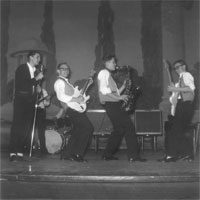 |
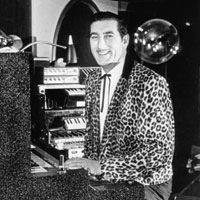 |
That same year, the band came under the tutelage of Doc Jorne, a professional musician who played a giant theater organ. |
|
He traveled with his own show, Organrama, which featured the many sounds the organ could make, including theatrics such as thunder and lightning, fire, bird calls, and hundreds of other great sounds. |
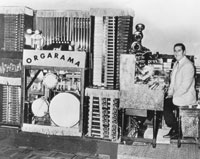 |
|
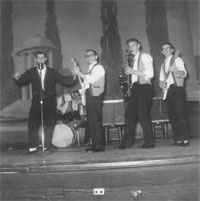
|
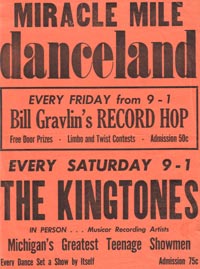 |
|
During this time The Kingtones were recording locally. Their first record, "Wish for an Angel / Don't Come Around," with Mervenne on lead vocals, was cut in Doc's basement in 1961. |
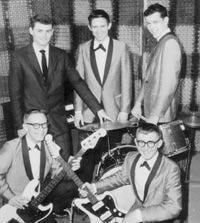 |
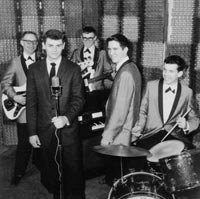 |
It was released on Musitone, Doc's own label. The record was No. 1 on the local Top 40 charts in West Michigan for five weeks. It out sold Del Shannon's hit, "Runaway," in the local market. |
|
Globe Records (now obsolete), with whom Doc had a connection, was going to sign the Kingtones and release their record nationally. The boys were under age, and some of the parents wouldn't give permission for them to go on a promotional tour. The record collapsed, and Doc, who had spent two years preparing the band for this event was very disappointed and so were the boys. Doc decided to take his Organrama back on the road, but his friendship with the band endured until his death in February of 2002. The Musitone label was gold with a crown on it, but that is not how the band got its name. In 1958, Gil King's father held a contest for the employees in his drafting firm to come up with a name for the band. The band voted on the suggestions and chose The Kingtones. A magnum of champagne went to the winner. |
|
|
In 1962, the Kingtones cut their second record, "A Love I Had/To Have a Little Girl," with Mervenne on lead vocals again. |
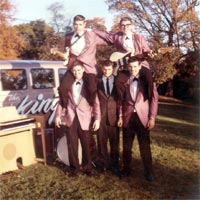 |
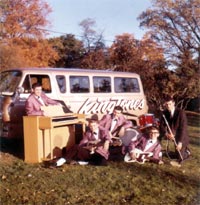 |
It was cut on the Kitoco Label. After it was pressed, Gil King left the band because of a dispute and Bob Major replaced him on bass. |
|
The local deejays did not give the record much airplay and it died a premature death. |
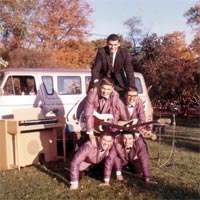 |
|
In spite of this setback, the Kingtones were becoming more and more popular. Wherever they played, crowds of enthusiastic fans turned out to hear them. |
|
|
BACK | NEXT PAGE |
|
Memorabilia | Merchandise | Tour Dates | Guest Book | Favorite Links
© 2003 Kingtones

